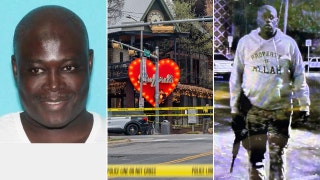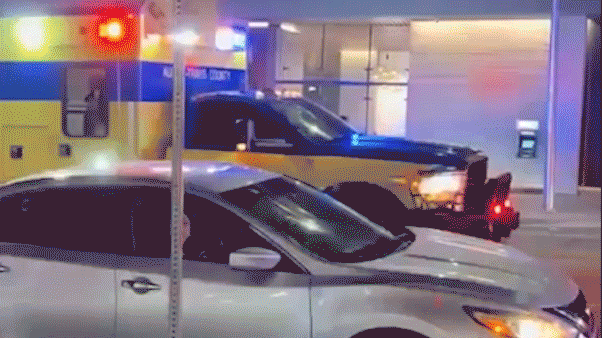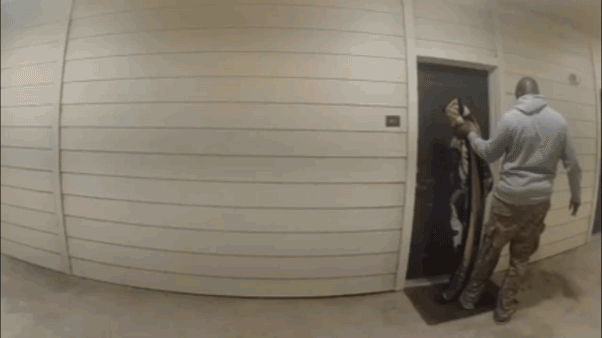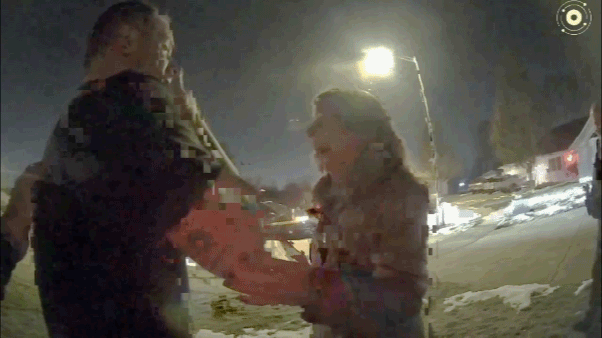A large wooden cross was placed at an Air Force Academy worship area for pagans and other Earth-centered religions, prompting an investigation by academy officials, though some caution that it's hardly "destructive behavior."
Mikey Weinstein, founder of the Military Religious Freedom Foundation, said an Air Force Academy staffer spotted the cross — erected with railroad ties — lying against a rock at a worship area for pagan groups at the academy in Colorado Springs, Colo., on Jan. 17.
Tech. Sgt. Brandon Longcrier, a self-described pagan who sponsors the group that worships there, said the incident was similar to someone leaving a pentagram or a pagan symbol at the academy's chapel altar and claimed he and others are victim of a hate crime. In an e-mail to Weinstein's group, Longcrier said his group had been "thrown under the bus by the system we trusted" and that the "hate crime" has been ignored.
David Cannon, director of communications at the Air Force Academy, said the incident remains under investigation. He declined to indicate whether it could be classified as a hate crime pending completion of the probe.
Cannon said that if a cadet were behind the incident, the Air Force would have the power to prosecute. If a civilian did it, the case could be taken up by local authorities.
"Until (the investigation) is over, we can't classify it as anything," Cannon told FoxNews.com, adding that it remains unclear whether cadets were involved.
In a statement issued Wednesday, Lt. Gen. Mike Gould, the Air Force Academy's superintendent, said the school will take "appropriate action" if a cadet was indeed responsible.
"Our message is simple: we are taking this incident very seriously and conducting an inquiry," Gould's statement read. "We absolutely do not stand for any type of destructive behavior or disrespect for human dignity."
Regardless of who left the cross, some critics say Gould's characterization of its placement as "destructive behavior" is inaccurate.
"What I think people are saying here is, 'We reject the idea of paganism and we are expressing another religious symbol,'" said Herb London, president of the Hudson Institute, a Washington-based think tank. "I'm not sure I would characterize that as a destructive act. A symbol put next to another symbol does not represent destructive behavior. It's somewhat exaggerated — you have your symbol, we have our symbol.'"
London said the incident is akin to placing a Hanukkah decoration in close proximity to a nativity scene.
"It'd be one thing if there was a harmful act, but to have competing symbols, I'm not sure I would put that in the category of destructive behavior," London continued. "What is being expressed here is the view of the Judeo-Christian as opposed to the pagan tradition."
Weinstein, whose New Mexico-based group represents more than 16,000 active duty and retired servicemembers, said the incident was "clearly" a hate crime and characterized any denial of that assertion to be preposterous.
"We don't think, we know it was a hate crime," said Weinstein, who compared the incident to spray-painting a swastika on a synagogue.
"It has the same impact, the same hurt, the same marginalization," he said Thursday. "That circle is their mosque, their church, their synagogue."
While the incident is "clearly insensitive and inappropriate," Todd Gaziano, director of the Center for Legal and Judicial Studies at the Heritage Foundation, a conservative think tank, also cautioned against applying that "destructive" label.
"This is a serious affront, it's insensitive, it's unacceptable — without saying it's vandalism, without saying it's a crime," Gaziano said. "And that's the way I think both sides should treat this. Some people can go too far in saying it's destructive or vandalism. It's serious notwithstanding, but it's not vandalism and it's not destructive of the property."
Gould, meanwhile, said the Earth-centered spirituality group that meets at the worship area falls within the definition of religion as defined in the United States Air Force Instruction 36-2706: "a personal set or institutional system of attitudes, moral or ethical beliefs and practices held with the strength of traditional religious views, characterized by ardor and faith and generally evidenced through specific religious observances."
Gould said the addition of the Earth-centered worship circle was done in response to requests of both cadets and active duty personnel.
"Therefore, it our obligation, my obligation, to accommodate the group's religious requirements in a manner that is fair and consistent with other religious groups who are accommodated at the Academy," Gould's statement continued.
Gould said the worship area — a stone circle atop a hill overlooking the academy's visitor center — is the latest addition to other sacred spaces for Protestants, Catholics, Jews, Muslims and Buddhists.
"Cadets learn that to succeed as an Air Force officer we must be able to support and respect the people who we lead, serve with and fight alongside even if they do not share our personal beliefs," Gould said. "Cadets learn that every servicemember is charged with defending freedom for all Americans and that includes the freedom to practice a religion of their choice or to not practice any religion at all."









































